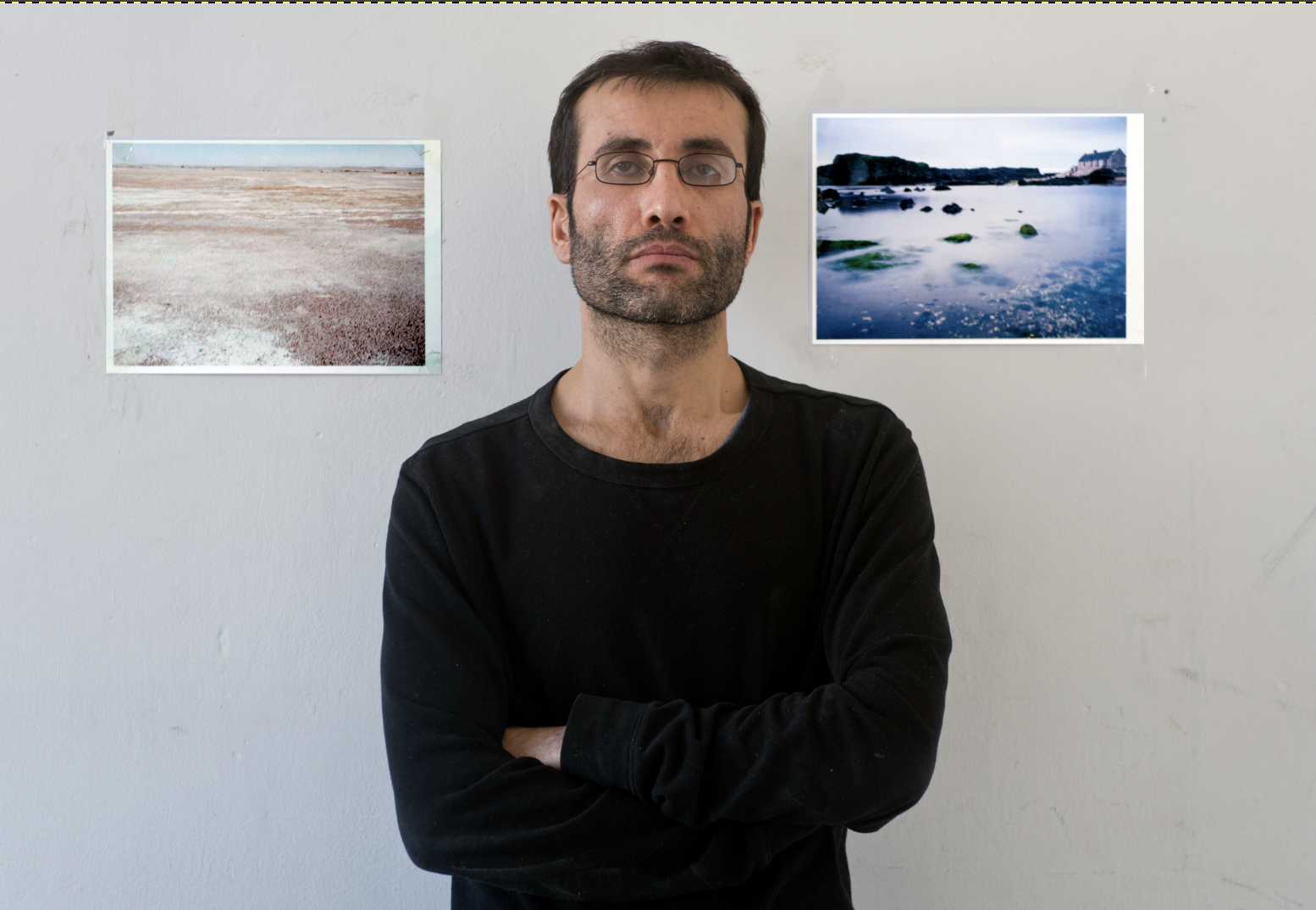MENU
When Wirya was a child, he saw streets full of soldiers with pictures of the new dictator. The new teachers spoke of Imamm Khomaini, the new leader, a son of God! The children had to say very loudly every day at school, ALL U AKBAR KHOMAINI RAHBAR. That means God is great and Khomaini is the leader! Some of his teachers, who spoke in Farsi and Azari at school, carried pistols.
Wirya’s mother tongue language was forbidden and the children had to learn Farsi/Persian quickly. Outside of the school, on the way to school and home from school, the children had to speak Kurdish very quietly. The regime destroyed this childhood. Wirya was more afraid than normal, more than others. Afraid of his aggressive teachers, afraid of thousands of soldiers who were also in his school. His school was a training camp for soldiers.
In this circumstance, there was no art. Art was forbidden. The real artists, musicians and writers who spoke, sang or wrote about freedom in Kurdistan, were executed by regime or moved to the mountains together with Kurdish fighters.
Wirya loved staying at home and being with his mother, listening to her, as she was singing in Kurdish or telling her stories. He communicated a lot with his mother. His father was an architect and poet. After his release from prison, he taught Wirya how to build a house and how to write a classic poem. He remembers his father making a drawing of a house on paper. In the midst of the devastation and after the war, the songs of his mother and this image of the house had a very strong effect on Wirya. He never forgot.
Wirya Budaghi-Wahshi Kuhi (born 23 August 1979) is a Kurdish-Iranian performance artist and activist. After he escaped Iran in 2003, he was allowed to live in Iraq on a residence permit that was renewed every 6 months, until 2011. In 2010, a new battle began with the Iranian revolutionary guard, which had listed his name as a dangerous person to national security. At the time, he was engaging in artistic activities to raise awareness about the situation of political prisoners in Kurdistan/Iran, organizing demonstrations in solidarity with prisoners and protests against capital punishment. Later, as a result of the Iranian guard’s persecution, he had to flee Iraq as well. He was held in two refugee camps in Bavaria until March 2013.
Wirya’s work deals with political power, specifically in Kurdistan but also in the context of migration. Wirya uses performance as a platform for collectivity among activists, artists and people.
With his body, Wirya thematizes state violence and military attack, right to mother tongue, and is politically active in participating in human rights activities with marginal groups. His work investigates colonial ties with Kurdish culture and challenges his own personal history of repression, migration in times of war and racial exclusion, the forced labour of guest-arbeiter and exotification of his body. Budaghi’s performance forms transmissions of body relationships, censorship, duration and sustainability to comment on oppression, visibility and patriarchy.
Wirya has an M.A in Art in Context (Distinction) from the University of Art, Berlin, with a focus on performance. Wirya’s works have been featured in Gallery Shanader, Kurdistan; Iraq’s Arbil Academy of Fine Arts; Kave refugee camp in Erbil, Kurdistan/Northern Iraq; Manchester’s Cornerhouse; BIFPA 17 Belfast International Festival of Performance Art; SKALA Gallery in Poznan Nomadic Arts Festival in Poland; MPA-B at Acud and OKK, SOMA Gallery, Gemäldergaleri, and SAVVY Contemporary in Berlin.
